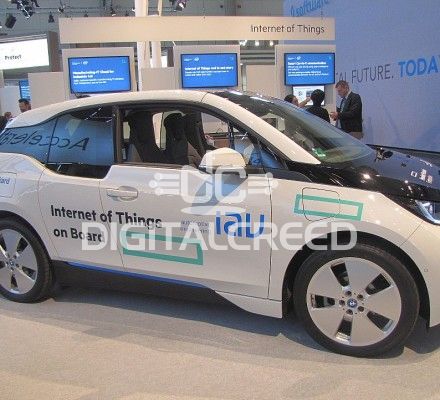Re-edited: 31 March, 2016
Hannover, March 16, 2016: Attending numerous conferences and meetings here at the CeBIT trade show, and walking its expansive expo halls (over 20, and each as big as an aircraft hanger), I am getting a consistent message: businesses must digitalize now — or face the risk of becoming extinct. The keywords ringing in my ears are disruption, digital economy, and innovation. Everyone’s talking about this here. But how do you expect industrial giants such as Siemens, Bosch, Daimler and others to go digital overnight? It took hundreds of years to build these businesses; they invested billions in R&D, and have thousands of employees in offices all around the world. And don’t forget all the intellectual property and patents. Yet, the leadership at these companies is uneasy and it fears about someone like say, Apple or Google, coming along and eating away market share. As one speaker at CeBIT Global Conferences asked: Will Apple be a phone company or a car company in future? Closer to today, look what Tesla is doing to the auto industry in the US.
On the one hand, you have all the traditional industries and systems (for instance, CAN bus and SCADA). And on the other, you have technologies like Internet of Things, Big Data and Cloud. Yet, someone has to build a bridge between traditional industrial systems, the world of IT and the Internet. And that’s a lucrative opportunity for IT companies like HP Enterprise, Cisco, IBM and others. At this juncture, I have to ask if current IT infrastructure is ready to handle the huge volume of data received from sensors and other systems in industrial machinery and automobiles. After all, the basic infrastructure of the Internet wasn’t built to handle communication from billions of connected things. But that’s a separate discussion for another day. Now coming back to Europe.
The moot question is: How do incumbent businesses in Europe go digital? It is not just about having corporate social media accounts or applications on the cloud.
Listening to the experts here at CeBIT Global Conferences, I gather that the innovation for digital will come from startups — the very outfits that incumbent businesses fear. Europe has excellent research in its universities and research centres. And Switzerland, which is the partner country for CeBIT this year, is a good example. For instance, Google’s largest research centre outside the US is in Switzerland. And don’t you forget that the World Wide Web was invented at CERN labs, Switzerland. Swiss/European universities may not receive large funding like the US universities, but don’t rule them out.
What Siemens, Bosch, Daimler, BMW, Volkswagen, Allianz and others need to do is to collaborate with universities and startups. They need to set up autonomous, self-governed innovation cells internally — isolated from the rest of the organization. And the innovation cells will of course have young talent and follow a startup culture. The innovation cells will in a sense cause a “controlled disruption” — because it will be disruption that’s happening internally. Eventually, the transformation will spread across the organization, as business models are changed and processes are re-engineered. And that’s the journey that incumbent businesses must take.
The large companies need to go to the universities, research hubs and to events like CeBIT — to understand what digital is all about. For instance, there are more than 300 startups showcasing their solutions in Hall 11 here at CeBIT. And the hall is branded SCALE 11. Some (like Bosch) are here to pick up talent. Others (like Datapath.io) are here to pick up new business. And the rest are looking for investors.
So it’s got to be a close discussion and collaboration with startups and research labs.
European businesses must be agile, change, adapt and behave like disruptors.
Either that, or become “Uber-ed”.
———————————————————————————————————————————————
The writer was hosted by Deutsche Messe for CeBIT 2016 in Hannover. Twitter: @brian9p

